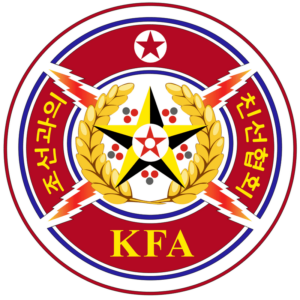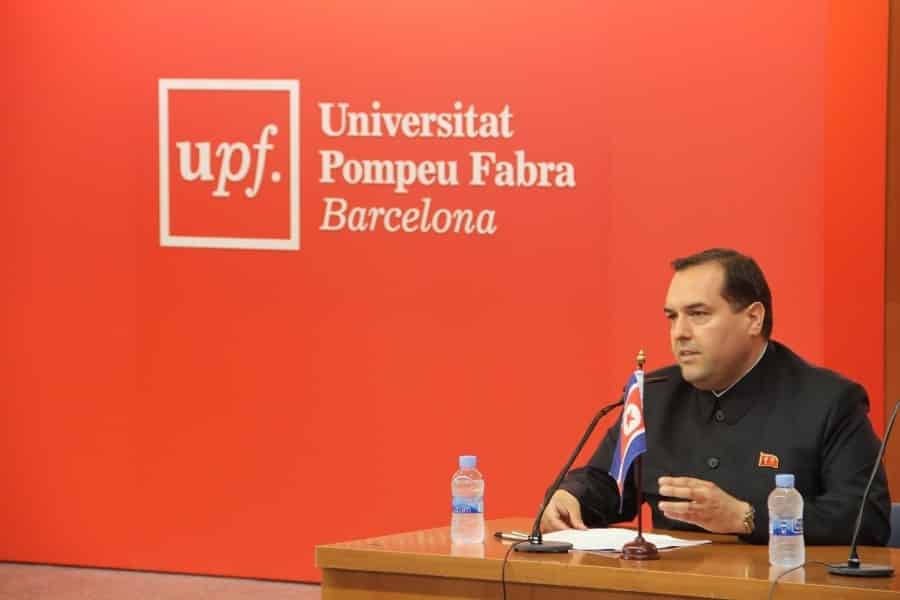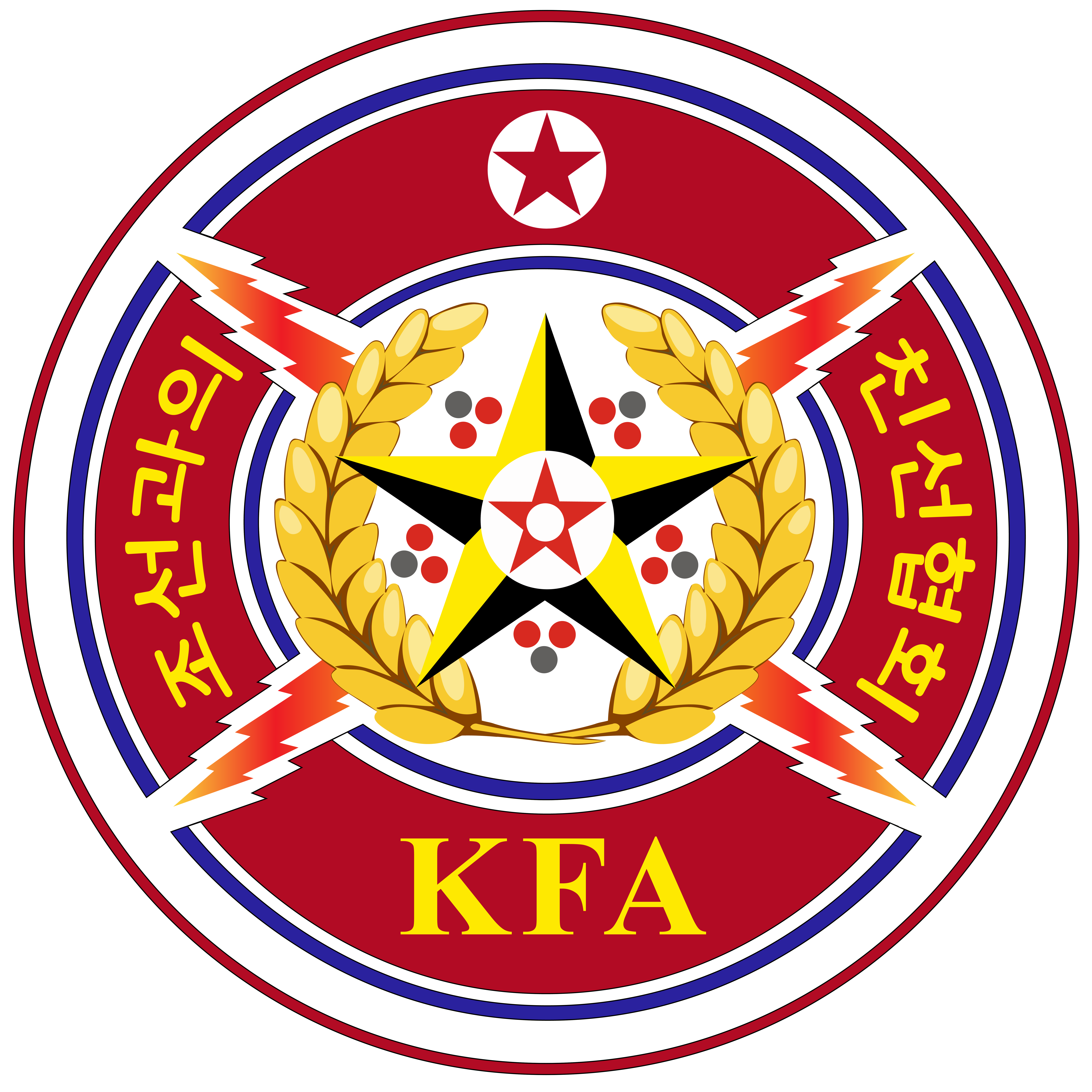News
Alejandro Cao de Benos Interview with Criminology and Justice
Original Article Here: Translated by Google Translate – “This is a great article where our President of the Korean Friendship Association, Alejandro Cao de Benos gives a fantastic interview about the DPRK! We hope you enjoy this and feel free to leave your comments below. — KFAUSA
Since the beginning of criminological science in the nineteenth century, the first authors and perceived the need to develop a comparative view of criminology, that would know not only how crime in the countries around us, but how are the preventive policies developed elsewhere, all with the purpose to work in the best possible design policies to manage the problems of crime. So much so, that theorists like Sheptycki and Wardak (2005) pronounced sentences as “any worthy Criminology of the name must contain a comparative dimension” or Aebi (2010) “Science is based on comparisons, and Criminology is not an exception to this rule. ”
However, to develop this comparative approach is essential to have all information, both in our country and nations with which we intend to develop the study. We find, at this point, a problem all too well known to criminologists and criminólogas, lack of public information. While we have little and little credible information on crime in Spain, there are countries where the information we have is so little that is barely existent, hindering that can route any type of study. A typical case of a country that we have very little information about the criminal justice system and its criminal policies is the Democratic People’s Republic of Korea, known as North Korea.
For this reason, we have with us today Mr. Cao de Benos, special envoy of North Korean relations with the West and president of the Korean Friendship Association (KFA).
Q. We get information from many and varied media about how the North Korean policy, but we would like to know the perception of the special delegate of North Korea abroad on that reality Could you briefly describe the current political situation in North Korea?
A. The situation in the DPRK is total stability. The Workers’ Party of Korea, which freed the country from the rule of the Japanese Empire in 1945, is the same as that currently has the most popular support. So although the socialist political system is updated and incorporates innovative aspects as practical, the essence remains the same. At home, the ownership of land and industry belong to the people and are managed by the State granting free housing. Also the education and health services are fully public and free. There are illiteracy and unemployment.
Q. Going on issues more directly related to the object of study of criminology, what you think are the main problems of crime that currently exist in North Korea?
A. The crime is very low due to several factors, first the existence of homogeneity in not allowing social class differences.Furthermore the use of media and artistic medium as authentic public classrooms to motivate and educate people on the positive values of human beings, and finally the absence of direct or indirect external influence that could encourage antisocial or criminal behavior imitation.
Compared to any other country it is very rare to observe these cases, but the theft would be the most common.
Q. In Criminology has been analyzed, in the case of the former Soviet countries, how brutal crime increased when diluted the Soviet Union in 1991. Do you see major differences between the problems of crime in North Korea and in Western countries?
R. Of course, are radically different. In Spain and other Western countries the pursuit of material wealth and competition are often the backbone of life. In countries as were the USSR and other socialist system, the message is unity, harmony and work for national prosperity. The compensation of the effort is rewarded by a meritocratic system, mainly medals or positions of greater responsibility.
In addition the government is responsible for not promoting art or entertainment related to gratuitous violence. An example in the West is the game GTA (Grand Theft Auto), which has usually been selling and is in its fifth installment. I recommend you try it. When a young man of 13 years must dive into a ‘world’ in which amasses money by illegal races, docking stations or killing rival clans, it is easier than in a tense moment, and if he gets a crossbow in the real world , end up killing someone.If guns are in their respective sports clubs and the kid does not learn that kind of behavior, the crime hardly occur.
I always give an example: The young Koreans do not even know the meaning of words cocaine or heroin. However recently, in a lecture I gave at the University of Granada, it occurred to me to say that we exported glass (obviously referring to hardened glass). It turns out that some students interpreted my words as a type of methamphetamine, and had to make a correction to be clear. I was really surprised. Someone think of the least likely meaning of the word (especially in the context where I was), says much of the so rotten society around them.
Q. We understand that the DPRK, like most Asian countries, bases its policy on a regulated criminal sanctions on different criminal acts system, does it? And, if so, what are the main penalties (eg, imprisonment, fines, penalties on behalf of the community, etc.) imposed in the country?
R. In the DPRK always prevention is applied, and use much a psychological mechanism based on being accepted and loved (or not) in the family.
In the country’s social cell is the community and not the individual, and fellowship involves a social cohesion. Although we are all different and have our way of thinking, if we sacrifice the selfishness or personal decision for the common good, for the good of the family and the country. In the case of an offender, he is breaking that rule, it is betraying the central ideal, so it makes you reflect and see if it behaves well be left alone. In Korea there is no mafia, no places to hide and lead a life apart from the rest. So even the hardest offender needs support and love someone, you will realize that crime does not pay.
The minor crimes are often excused in exchange for social work and public promise to the family, colleagues, etc. that this situation will not be repeated. Thus it ’embraces’ back to the accused, and in most cases the company and their job is reinstated.
However, in case of repeated or serious crimes (such as rape) the penalties are much more severe than in the West, and most of them will involve forced labor for many years and a permanent blot on his record that will prevent access to jobs or positions with relevance for life.
Q. We’ve heard publicly on several occasions about the rejection that society itself imposes on certain behaviors that, while not criminal, yes they are perceived as immoral by the community, could you tell us how often the reaction of society For example, a case of adultery?
R. Adultery mean immediate divorce in almost all cases, the rejection of both families and a heavy burden on the political and professional life. Although not recorded in the official history in Korea people talk a lot, the behavior of the subject will spread like wildfire and probably can not find a partner in the future. Morality has been an important feature in Korea for hundreds of years.
P. also periodically receive news about people on death row in the country, in this regard, we would ask if there is indeed the death penalty in North Korea. And, if so, what are the behaviors that may be condemned to capital punishment are?
A. The death penalty dictates only in very severe cases, bloody terrorism, murder or attempted coup. It applies exceptionally by firing squad and neither advertised nor exhibited. Most news regarding this are totally false and sources are usually the CIA or the NIS (Intelligence Service of South Korea).
Q. Finally, we would like to ask if you are aware of the existence of college or other Criminology in North Korea .
A. There are those studies, but usually training is linked to scientific or police related to the Ministry of People’s Security (Ministry of Interior) runs. It is not as common as in Spain, because the DPRK no independent detectives, private security, criminal cases journalists, etc.
——–
Thank you again for the answers, which have been published in full and without the slightest amendment, Mr. Cao de Benós.
REFERENCES
Aebi, MF (2010). Methodological issues in the comparison of police-recorded crime rates. In Shoham, SG, Knepper, P. and Kett, M. (eds.) International Handbook of Criminology (211-227). Boca Raton / London / New York: CRC Press, Taylor & Francis Group.
Sheptycki, J. and Wardak, A. (eds.) (2005). Transnational and Comparative Criminology . London: Glasshouse Press.


